The Well-Trained Mind: A Road Map for Our Homeschool
As an Amazon Associate I earn from qualifying purchases. For more details, please see our disclosure policy.
The Well-Trained Mind serves as a road map to our homeschool, showing us the different paths we can take, as well as reminding us to pace ourselves and our kids.
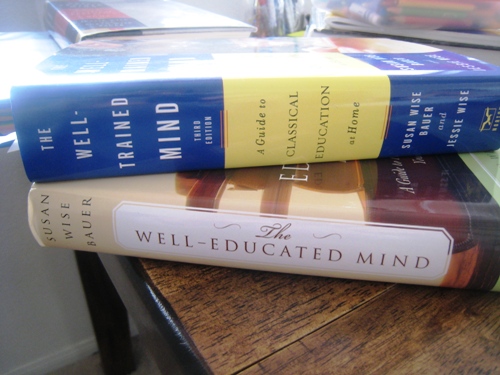
Want to save this post?
Enter your email below and get it sent straight to your inbox. Plus, I'll send you time- and money-saving tips every week!
Last week I shared about a new series on Life as MOM. With the oh-so-humble title of FishMama’s Picks for Homeschooling, it is my effort to share what’s worked for me in this past ten to fifteen years of teaching and parenting at home.
Mine is not the only way. And it’s certainly not the best way — for everyone. It may not even be the “best way” for our family. But, so far it’s working. There’s always room for improvement — and also a limited number of hours in a day. We can only do what we can do.
So, please don’t go tell your husband, “This is what Jessica says we should do.”
This is just what Jessica does.
(And, yes, these series posts may include affiliate links, which means that I may earn a portion of the sale if you click through these book links and make a purchase. Feel free to type a vendor’s url directly into your browser if you prefer not to use an affiliate link.)
Finding A Road Map for Our Homeschool
Fifteen years ago, when my baby was still in utero, we decided we were going to homeschool. We had no idea how. We didn’t even know that many people who did. We just knew that was what we wanted: to teach our children at home. Our story of why we homeschool is here.
A year or two later we found ourselves in a community rich in homeschoolers — and homeschooling catalogs.
Honestly, this was the Dark Ages. The internet was run by squirrels in a cage. Squirrels starved of acorns with no energy to run.
(Anyone old enough to remember those days?)
I had a vague idea of the style of homeschooling that I craved, one that was rich in literature and history. Some of the catalogs spoke to this longing.
And so I fired up Ye Olde Computer and ordered two books off Amazon. It took days for the spooling to complete, but eventually the order went through. And in about two weeks, I had what I had discovered in a catalog — for a cheaper price, of course.
Recovering the Lost Tools of Learning by Douglas Wilson describes classical education, a philosophy of education that really resonated with me. Last year in my Getting Started in Homeschooling series I shared the importance of determining your family’s philosophy of education.
What is Classical Education?
The definition of Classical Education can be misconstrued or distorted. Folks think that if it’s an ancient form of education then it must be boring. Au contraire, mon frere.
In essence, a classical education teaches a child how to learn.
I like how The Well-Trained Mind defines it (p. xxii):
- It is language-intensive — not image focused. It demands that students use and understand words, not video images.
- It is history-intensive, providing students with a comprehensive view of human endeavor from the beginning until now.
- It trains the mind to analyze and draw conclusions.
- It produces literate, curious, intelligent students who have a wide range of interests and the ability to follow up on them.
Early on I was convinced that a classical education was one that I wanted for my kids. But how could I pull it off?
The story of one family
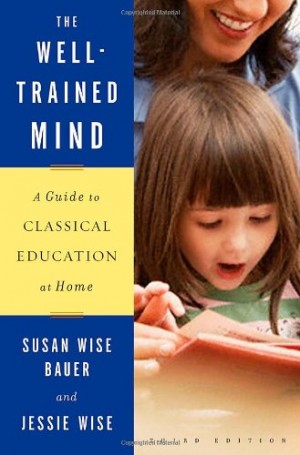
I devoured the book, cover to cover, in a matter of days. And my path was set.
Told by Susan Wise Bauer and her mother Jessie Wise, The Well-Trained Mind recounts the story of a family who set out to do something pretty wild and crazy: teach their kids at home via “old school” methods.
And the experiment was a success. The kids were not only literate, but successful, social human beings. Susan’s story is the one that is told in greatest detail, obviously; she wrote it. She’s earned several graduate degrees, is a professor at William and Mary College, and runs a publishing company, in addition to raising four kids, running a farm, and supporting her husband, a pastor.
Yeah, she’s a sharpie, that one.
One of the things that really grabbed me about this book was its vision of a homeschool mom who was engaged, literary, and active in life.
Homeschooling isn’t a dreary existence!
A TripTik for Homeschool
The curriculum path that Bauer and Wise laid out made sense to me both as a parent and as a student.
That is, after all, the crux of The Well-Trained Mind. It lays a map of all your different options of curriculum and study resources and suggests a mode for teaching K-12 at home. They do the homework for you, so you don’t have to get bogged down looking at everything.
Think of it as the TripTik you get from AAA before you head out on a vacation. The path to take is highlighted for you as well as detours through the city, in case you want to bypass some slow moving traffic. You can go at your own pace, stop when you want, and add or skip attractions as your family decides. (And there are reminders that you don’t have to do it all. Pace yourself!)
The Well-Trained Mind is your TripTik for a classical education at home.
For those who don’t homeschool, the book serves as a great primer for what has come to be known as “after schooling”. It offers great suggestions for enrichment activities and ways to supplement your child’s education.
I first read the original 1999 edition when my son was two. I still have it. It’s falling apart. Recently, I finished a reread of the third revised edition. I gave a copy to my sister. I am more encouraged by this book today than I was thirteen years ago. And that’s saying a lot.
Much has changed in the last decade besides the speed limit on the information highway. The variety of books and curricula available today are huge compared to what us newbies experienced ten years ago. And even in rereading WTM, there’s still more to understand and clarify in my mind and practice, especially as we carve a new path into the high school years.
What “made sense” ten years ago looks different now that I’m actually walking it out with my own kids.
Attending Susan’s lectures at the Great Homeschool Convention fleshed out a lot of the things that I had just been reading about. I highly recommend them. (You can download them from Peace Hill Press.)
While I don’t do everything that’s prescribed in The Well-Trained Mind (no one ever could), there is enough direction and substance to equip me with the confidence to go the distance. That is what I took away when I read it in 1999. And that’s what I take away today.
I can do this! (And so can you.)
photo source: Heidi
Last month I got a chance to meet Susan in real life, sit in her living room, share dinner, and ask her anything I ever wanted.
(It was reminiscent of the time Dave Ramsey gave me a high five.)
I’m not a groupie in any way. Not usually. But, there are some people who have had a huge influence on my life, and it’s an honor when I get a chance to meet them. Our conversations were instrumental to understanding more about how to make our homeschool work better for my whole family.
Heidi, Mandi, Stephanie, Tsh, and I convened at the Peace Hill Bed and Breakfast, shared meals together, toured Colonial Williamsburg, hung out at Peace Hill Press, and had a blogging trip like no other. For me, it encompassed my home, work, and even my family life as I got to hang out with my sister while I was there as well.
You will probably be hearing a lot about this trip as well as my trip to the Great Homeschool Convention in Long Beach a few weeks ago. This year and my recent Extreme Homeschool Makeover has been pinnacle for me, especially as I will have SIX students this next year. Yikes!
And obviously, The Well-Trained Mind has played a huge part in that, now, as it did when I was first beginning. It’s been a wonderful road map in getting to know the terrain of homeschooling.
What resource guides your homeschool?
And if you don’t homeschool, what questions do you have?

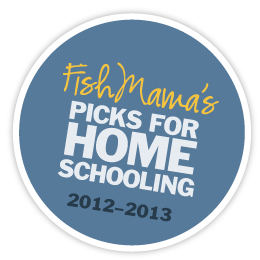
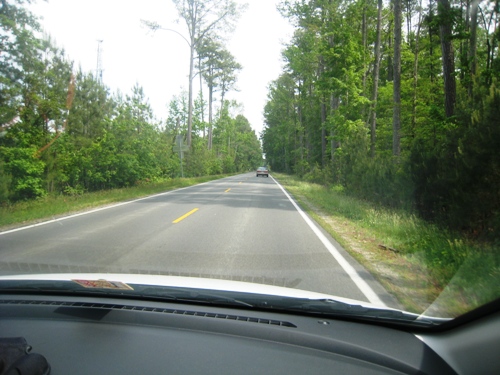
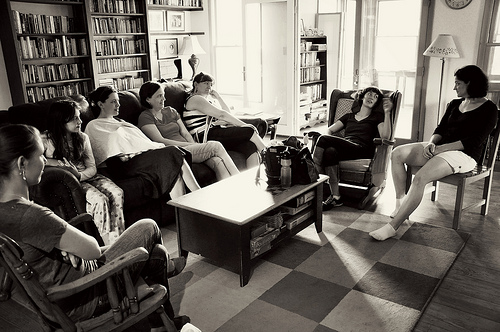

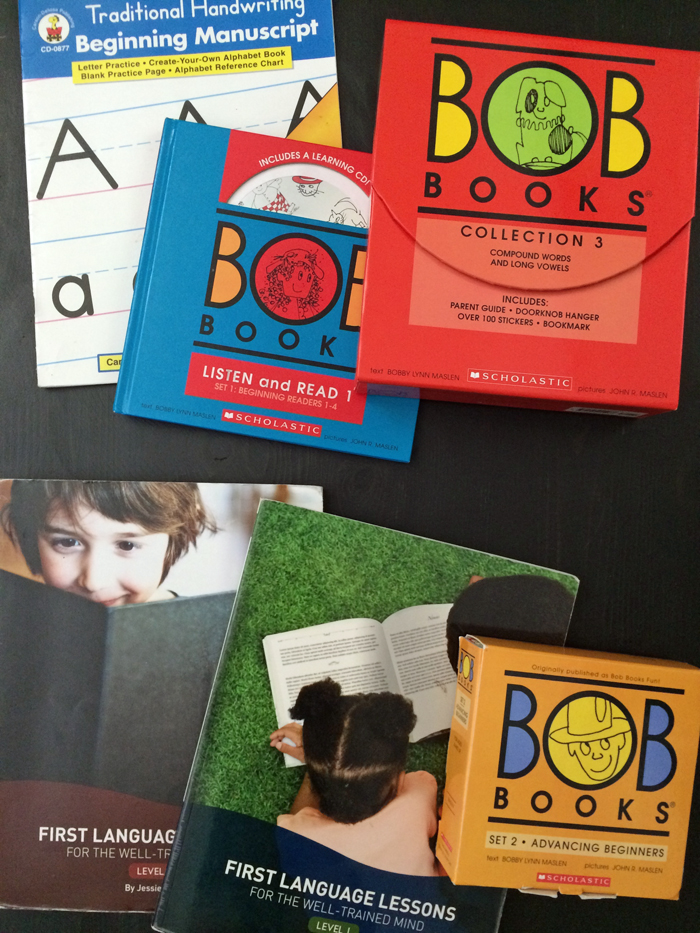
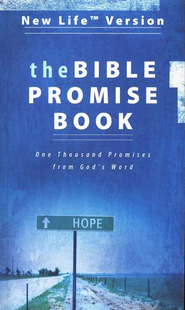

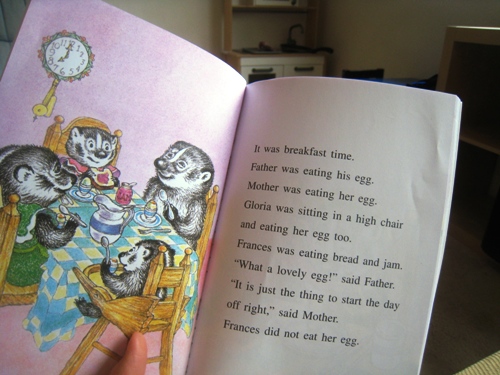
Thank you for your article! I’m answering that last question for you—we public school (and, I guess, “after school!” Great term! Our schools send home very little homework if any which works well.) I found your article looking for more information on Well Trained Mind. We like their math facts resources, and I wanted to see what the rest of their workbooks are like. I like to find fun ways to solidify basic skills and build off of them along with reading chapter books aloud. As a science lover and former public school science teacher I’m all about the natural world! I would like to know if WTM is a neutral curriculum or if it tries to weave a specific worldview into the academics. I’d rather do that in other ways.
Homeschooling can be great for many families—I was homeschooled for a couple of years myself and know how it can help people thrive! Why we public school: My mom was widowed when I was a middle schooler, and the Lord provided for myself and my three siblings richly through public school. I could sing His praises in so many ways for it! Rather than provide four yearly private school tuitions or space at a homeschool mom’s table, He brought Christian families “with options” into our lives to walk alongside us and learn how to disciple a child in the context of a public school education. Now we are doing the same for other families. We are there for people like middle school me and my widowed mom. It’s not for everyone, but we have been made ready for this work! I’m glad WTM has empowered you to homeschool the way you want to. Thanks again for sharing!
Thanks for chiming in and sharing your story. It’s always so great to hear how God works in the lives of his people.
We were homeschooling but have decided to put our kids back into school for the time being. Actually our boys begged us to send them back 🙁
I prefer homeschooling – with a mixture of books and free homeschooling. Where my boys learn by what they want to know. I think that children learn more when they are interested instead of being forced to learn! Great blog post.
thanks for explaining all this- I always wondered what “classical” meant, but did not take the time to research it.
Question:
My son will be going into 6th grade; is it too late to start this???
I don’t think so. Even our family hasn’t strictly stuck by the things that I wanted to do or wished I had done over the years. Life happened. And things, like survival, took over. In many ways, I’m just now instituting some of the things in WTM with my 7th and 5th graders. You can definitely start now, and there is advice in each grade level section for those just now starting this approach.
Oh, this gets me excited. My oldest starts kindergarten this fall! And we have decided to homeschool! The Well-Trained Mind is on it’s way to my home via Amazon right now 🙂 I’m nervous – but so ready. You’re posts have been such an encouragement to me – I’m sure they will continue to be!
Sweet Blessings,
Kate 🙂
Yeah! That’s so good to hear!
Can’t wait to hear what you think of it.
I have just one question. How did you do homeschool with each new baby? I mean the first few weeks when you are exhausted and dead to the world. Did you take a mini vacation and start again when you had some rest or did you push through as a superwoman? Could you tell me more about those experiences or point me to a past post?
Very carefully! 😉 Actually, once we got over the first couple weeks, I found it easier to homeschool with a newborn. Mine seemed to sleep all day making it easy to do school in the early weeks. It’s a six-month old crawling and getting into everything that is the challenge. But, one of the beauties of homeschooling is that you get to write your own calendar. You can very easily adapt your school schedule to fit YOUR life and not the other way around. Love it!
This post addresses the scheduling issue: http://lifeasmom.com/2011/08/getting-started-in-homeschooling-building-your-academic-calendar.html
Okay, so I’ve heard about this book all over the blogosphere and finally went to the library to check it out today. Thanks for reminding me of it!
Here’s my question: I have a 10 month old (my first) and I am chomping at the bit to homeschool…I must be weird or something!! What can I be doing until she’s old enough to officially ‘do school?’ We read, try to spend lots of time outdoors, but I want to be doing more! I think I may need to steal a couple people’s children and homeschool them until mine is old enough. 😛 Thanks!
I was just like that! If I were do it all over again, I would work on my own education. I already had a Master’s degree when my son was born, but there were a lot of classics I had not read. Take that energy to expand your own knowledge. That will totally serve you later when your daughter is ready for active learning and you don’t have the time to read all you want. The Well-Educated Mind is a companion book to The Well-Trained Mind and is good for helping you expand your own education.
Great suggestion! I never thought of that. 😀
So good to hear about Classical Education and homeschooling from someone who doesn’t fulfill the dull, boring, stereotype! I’ve been homeschooling for 5 years, and although things have gone well, I feel like we’ve been in a bit of limbo as far as practical philosophy is concerned. I’ve loved reading things from Charlotte Mason, but I think it’s time to tackle The Well Trained Mind. My youngest is starting Kindergarten this year, and it’s high time we settle into a cycle of learning with a bit more direction.
I would say that I am a combo of several methods, though my bent is certainly CE. They are not really mutually exclusive. In some ways I feel like a classical unschooler. There are some days when we ditch the plan and read books all day.
Hi there; I am considering homeschooling my two and a half year old long term (we are starting some preschool work in the Fall at home with another homeschooling mom and daughter). I read The Well Trained Mind and found it very appealing. I hope to eventually use some of her curriculum plans in my own efforts; thanks for sharing your experience and post.
Thank you for the information. I am not a homeschooler, but believe very much in parental involvement in the process of education. Both of my children are very bright, and I am grateful for a variety of programs available in the area I live for children who require more than just the standard education. As a result my son is now a successful engineer at the age of 25 now leaving the country, invited to join an international team in London. While my daughter still attends high school (is bilingual, an IB student, and is part of a well known chamber choir travelling abroad this fall). Each child deserves the best (most enriched) education possible; at home or part of the standard system. Parent involvement is the key.
I am curious about the books mentioned (I am a little farther along in the parent/school journey however).
All the best,
Jan
I, too, love The Well Trained Mind. I bought it when I was going to homeschool my oldest a few years ago. She ended up in public school for K and 1st grade, but we will be homeschooling “classical style” this fall. She will be 2dish and my younger daughter will be K.
My Mother’s Day gift this year was my own copy of TWTM ( thanks, hubby!). I’m about to start my 4th year of HSing and I discovered that Classical education is what I’ve been striving for all along. Reading the book and taking notes helps me to clearly see what direction we’re heading…love it!
I am a newbie to homeschooling. We just finished up our k year with my oldest. I tried to piece together my own stuff for her and ended up with a ‘not so great’ year academically. I didn’t stress over it because its k, but I knew I had to do better for first grade. So I ordered A Well Trained Mind-and like you I read it in a few days. It sounded perfect for our family’s goals. It helped me develop that long term vision that I needed. I decided to go with all her suggestions (even though they may not all work out) and am excited to start our first grade year! I am still drawn to Sonlight (oh those catalogs!) and Charlotte Mason but I feel much more confident having TWTM as a guide. They obviously know what they are doing so why not use their wisdom? I loved this post! Can’t wait to hear more about your visit with Susan Wise Bauer and the convention!
Definitely don’t feel bad. In fact, Susan stressed in one of her sessions the idea of not trying to learn two new and separate tasks simultaneously. I think this applies to the learning the homeschool rhythm and learning how to plan curriculum. Now that you have a year under your belt and an idea of how your family operates at home, you can better decide WHAT to do. You’ve already got an idea of HOW you guys work together. Good luck!
I love a curriculum rich in good literature and history. I also have auditory and visual learners. So I do classical learning with a twist, this year I am assigning the kids a classic to listen too on audio download each week. They watch science and history shows for 30 minutes each day out of their school year. They play memorization games on the i-pad and logical thinking games on the computer. They listen along as they read to their history. My older son does My Father’s World ( I get the audio versions of some of his books to help with his reading comprehension). Our homeschooling journey is now 10 years in the making, and I am still learning every day!
That’s wise of you to adapt to your children’s learning styles. I just checked out a bunch of books on tape for the kids to listen to at bedtime. My littles love it.
Hi, Victoria,
I appreciated your comments and wonder if you would be more specific about you resources for science and history and audio classics. I have found programs on Nova and had my seven-year old watch them, but, would be more interested in something more age- appropriate.
Thanks for your consideration.
Happy homeschooling!
When we first started homeschooling my daughter had already been in public school for 4 years so I “thought” I had to keep that pace up and bought all the curriculum and teacher’s guides for every subject. What I got was burnt out very quickly. Shortly thereafter my path crossed with Cindy Rushton (online) and I devoured her books on homeschooling. That put me on the road to find the Charlotte Mason method which is probably the basis of our homeschool today.
I admit that I need a boost to feed my excitement again as I feel I’ve lost my groove. I should do as you did and go back to the books that influenced me at the beginning and start again.
Thanks for the great post!
HUGS
Kim
I think that is a great idea! I found that by revisiting those “first loves”, some things made more sense now than they did ten years ago.